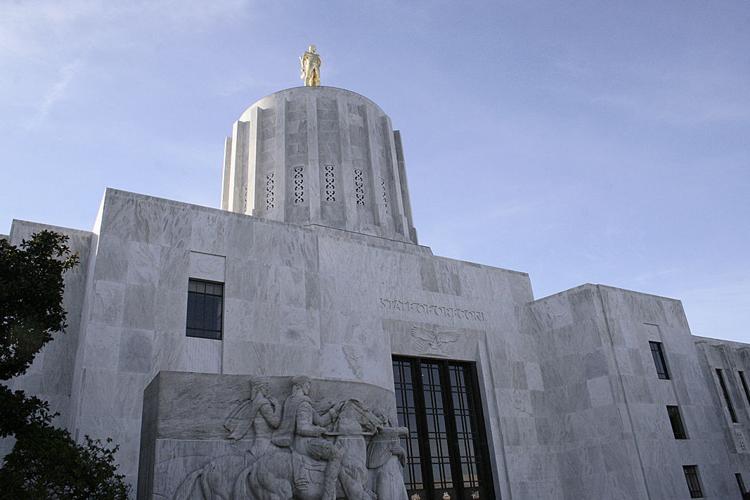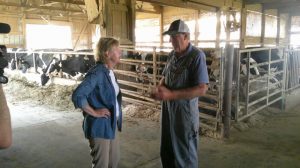
Dairy farmers crammed a hearing room at the Oregon Capitol in Salem last month to testify against bills that would eliminate “right to farm” protections for large dairies.
Losing those protections would leave large dairies vulnerable to lawsuits over nuisance and trespass as well as local ordinances regulating their operations.
The Senate Committee on Environment and Natural Resources did not schedule a work session to vote on either proposal by the March 29 deadline, killing Senate Bill 104, which would classify large dairies as industrial, and Senate Bill 104, which would prohibit new construction of large dairies and impose air and water restrictions.
Opponents of the legislation argued that family dairies often grow larger as new generations join the business, and they shouldn’t be penalized for the notorious downfall of Lost Valley Farm, a dairy in Boardman, Ore., that went bankrupt after a profusion of wastewater violations.
Sen. Betsy Johnson, D-Scappoose, urged the committee against passing the bills, which she called “an enormous threat to the economy of Tillamook County and the vibrant dairy industry throughout Oregon.”
Supporters of the bills claimed the changes were necessary to close regulatory loopholes that were exploited by Lost Valley Farm’s owner.
While SB 103 and SB 104 are dead, the committee is still considering Senate Bill 876, which would require new large dairies to clear new regulatory hurdles before starting operations. A work session on the proposal was scheduled for April 4.
Timber proposals
Another piece of controversial legislation that would prohibit clear-cutting in forested watersheds has also come to an end after it encountered strong opposition from the timber industry.
Proponents touted Senate Bill 2656 as a way to ensure safe drinking water for rural communities that depend on waterways that flow through private timber properties.
Critics of the proposal countered that forestlands have the highest water quality in Oregon compared to other land uses and claimed the bill would eliminate commercial production across millions of acres.
The March 29 legislative deadline proved deadly for another proposal opposed by the timber industry that would repeal lower property tax rates for commercially managed forests in Oregon.
Supporters of House Bill 2659 said Oregon counties would see increased revenues from the proposal, which would also encourage landowners to adopt environmentally friendly practices to take advantage of tax exemptions for “natural” and “semi-natural” forests.
Opponents of the bill argued it lacked a scientific basis and would eliminate jobs in the timber industry while encouraging forest fires and conversion to other land uses.
Aerial applications
Legislation that would change reporting requirements for aerial applications of pesticides and fertilizers will go no farther this legislative session.
Under House Bill 3044, flight conditions during aerial applications would have to be reported to Oregon’s Department of Environmental Quality, which would make the information available to the public and fine companies for chemical drift and other violations.
“An industry that does not overspray has no fear of notification requirements. An industry that does not overspray has no fear of fines for doing so,” said Rep. Marty Wilde, D-Eugene, the bill’s chief sponsor.
Critics of the proposal, including the Oregon Farm Bureau, Oregon Wheat Growers League and Oregonians for Food and Shelter, worried the bill would expose applicators and landowners to possible harassment or vandalism and claimed that drift can’t reliably be confirmed from flight records.
Critics of HB 3044 also argued against shifting oversight of aerial pesticide spraying from the Oregon Department of Agriculture to the DEQ, which doesn’t have as much experience in regulating pesticides.
Water use reporting
A proposal to increase the number of irrigators who report their water usage to Oregon regulators has died in committee.
Only about 16 percent of water right holders — generally irrigation districts and municipalities — must currently report their usage to the Oregon Water Resources Department.
Under House Bill 2851, OWRD could have required anyone who must measure water usage to also report it, which supporters claimed would help the agency better understand water availability when making permit decisions.
The Oregon Farm Bureau and Oregon Water Resources Congress opposed the bill, arguing that OWRD doesn’t have the resources to analyze the data, which would likely be used against irrigators in litigation.
























